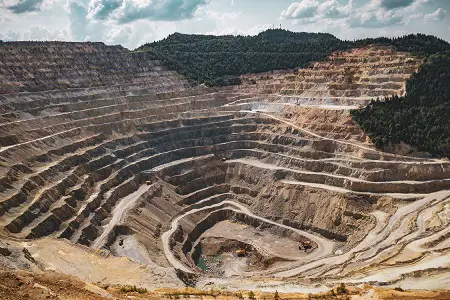In Xinjiang, a lithium producer which services Electric Vehicle manufacturers such as BMW AG and Tesla Inc. is performing assessments of various projects, strengthening ties between the Electric Vehicle industry and a region of China known for human rights abuses.
China’s top lithium producer, Ganfeng Lithium Co., is looking to develop lithium, nickel and other critical metal asset projects in partnership with a subsidiary in the region. Already Ganfeng’s Chairman Li Liangbin has visited the region to discuss cooperating with the government on the plans.
Activists are raising the alarm given the history of allegations of human rights abuses and forced labor, mostly focused around the Uighur ethnic minority in the region. This alarm is adding to the growing concern over the environmental aspects of rare earth metal mining, and the effects of manufacturing electric vehicles on the environment. Many are hoping investors will increase scrutiny on the deepening ties between Ganfeng and Xinjiang.
Ganfeng noted in November it had a new three-year deal with Tesla to supply battery grade lithium hydroxide products to Tesla, as well as other deals with other manufacturers like BMW.
Xinyu, Jiangxi-based Ganfeng issued a statement emphasizing it puts a premium on “the importance of environmental protection, social responsibility and corporate governance,” including defending the human rights of employees.
Ganfeng said that in Xinjiang, “the resource is at an early stage of exploration and it’s currently uncertain whether there’s suitable projects available for future development.” The company noted it has multiple projects in many countries, to avoid concentrating environmental damage excessively in one area.
BMW said it uses Ganfeng to supply it with lithium from Australia and it has not been informed yet of any Chinese project, while Tesla refused to comment.
The US and Western allies have slapped duties on goods being imported from Ganfeng as well as sanctioned some individuals and entities associated with the region, over concerns regarding humans rights abuses. China has denied all allegations.
In the US, the Uyghur Forced Labor Prevention Act, which went into effect in June, will block all imports of any goods unless it can be proven they were not made with forced labor. Already it has blocked the import of some solar products over suspicions about the raw materials they were made from.
Tesla has released a list of 12 mining operations and refiners it has used to source raw materials, with Ganfeng listed among four lithium producers. The automaker said it has audited its suppliers, and found no instances of forced or child labor or inhuman treatment of workers. Tesla promised to end relationships with suppliers involved in any such activities.
Emily de La Bruyere, a co-founder of Horizon Advisory, a consultancy dealing with forced labor issues, said, “The risks to the EV sector of inputs coming out of Xinjiang is huge. It places all of China’s battery production at risk of violating US law and global norms around human rights, and that risk is only going to grow as China continues to build up EV-relevant industries in Xinjiang.”
The new venture will be a joint venture between a Ganfeng unit and Xinjiang Geology and Mineral Investment (Group) Co. The new company was registered in the regions capital in May with an initial investment of about US$13.3 million. The new company will be 49% owned by Ganfeng Zhongkai Mining Technology, a joint venture between Ganfeng Lithium and Jiangsu Nonghua Intelligent Agriculture Technology Co., and 51% owned by state-backed Xinjiang Geology and Mineral Investment.
Analysts said if Tesla wishes to keep its relationship with Ganfeng now, it will have to prove the materials it sources from the company were not sourced from Xinjiang. This may not be difficult given Ganfeng has a vast network of operations across the globe, and may be able to use the Xinjiang operation to supply rare earths to markets with no restrictions on Xinjiang, especially domestically, while diverting rare earths which would have supplied those unrestricted markets to foreign customers in restricted regions. Seth Goldstein, a Chicago-based equity strategist at Morningstar Research Services said, “The customer could likely request to buy lithium from Ganfeng’s other operations. With regards to Tesla, I don’t foresee any problems.”
Some however note it may be difficult to isolate the materials, given the complexity of rare earth and EV supply chains, which involve multiple levels of mining, refining, component manufacture, and assembly, typically spread across multiple sites across wide geographic areas. There are also worries such complexity could be used to mask the origin of restricted materials and components.
Richard Clayton, research director at SOC Investment Group said, “Any indication that Tesla, or another EV or battery manufacturer, is in fact collaborating with businesses that seem plausibly to be using forced labor would be very concerning to investors.”
He added, companies using these suppliers will “significant reputational, regulatory, and potentially legal risks stemming from the environmental and human rights practices” associated with the production of these matierals and components.


